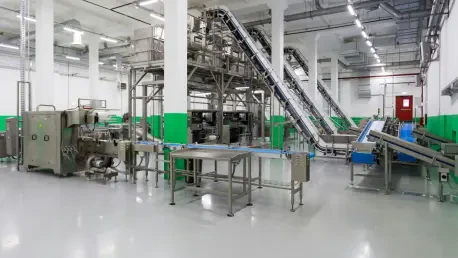Workers at JBS Foods in Worthington, Minnesota are advocating for enhanced health and safety conditions at their pork processing plant following a surge in workplace injuries. The United Food & Commercial Workers (UFCW) Local 663 has taken the lead in pushing for these improvements, particularly in light of the Trump administration’s policy that permits higher line speeds in processing facilities. They are calling for several specific changes, including posting line speeds on production lines, providing comprehensive training, and empowering workers to enforce line speed limits. UFCW 663 underscores the critical relationship between line speed, worker injuries, and food safety.
Rising Injury Rates and Safety Concerns
UFCW 663 President Rena Wong has stressed the urgency of addressing these issues, expressing frustration over JBS’s repeated rejection of their proposals. She emphasized that safer line speeds would not only safeguard workers but also ensure the production of safer meat products for consumers. During the pandemic, when line speeds were slower, there was a noticeable reduction in injuries. However, with the increase in line speeds, the number of reported injuries has surged: 100 incidents were recorded in the current year compared to 88 in 2022.
The U.S. Department of Agriculture, under Secretary Brooke Rollins, has extended waivers that permit these higher line speeds. This decision is based on a study funded by the Food Safety and Inspection Service (FSIS) and conducted by the University of California, San Francisco. The study concluded that line speed is not the primary factor contributing to musculoskeletal disorders among workers. Despite this, workers like Diana Rodriguez have shared personal stories detailing injuries sustained on the job. Rodriguez’s account of a tendon injury highlights the immediate and longer-term impacts of workplace injuries, revealing broader concerns about managerial responses to worker health.
Industry Support and Economic Perspectives
The National Pork Producers Council (NPPC) has shown strong support for increased line speeds, viewing them as essential for financial stability and security within the industry. NPPC President Duane Stateler praised the recent decision to make the increased line speeds program permanent, citing potential economic losses that could have occurred had the program been discontinued. This perspective focuses on the economic benefits derived from higher production rates and greater efficiency, which are seen as crucial for maintaining competitiveness in the market.
Despite these differing viewpoints, ongoing negotiations between UFCW 663 and JBS have not yet resulted in a new contract. These talks have been ongoing since January, but with the current contract set to expire on June 1, the pressure to resolve these issues is mounting. The struggle exemplifies the broader conflict between industrial efficiency and labor rights, underscoring the need for a balanced approach that takes into account both economic and worker safety considerations.
Worker Well-being and Future Outlook
Workers at JBS Foods in Worthington, Minnesota, are advocating for better health and safety conditions at their pork processing plant due to a rise in workplace injuries. The United Food & Commercial Workers (UFCW) Local 663 is leading efforts to push these changes forward. This advocacy comes in response to the Trump administration’s policy that allows increased line speeds in processing facilities. The union is calling for several critical measures: posting line speeds on production lines, providing thorough training for employees, and giving workers the authority to enforce line speed limits. They stress the essential link between line speed, worker injuries, and food safety. The UFCW Local 663 argues that having clear line speed information and the power to regulate it can significantly improve safety and well-being for the workforce. By highlighting these connections, they aim to ensure that both workers and the food supply remain safe and secure amidst the increasing demands placed on processing plants.









